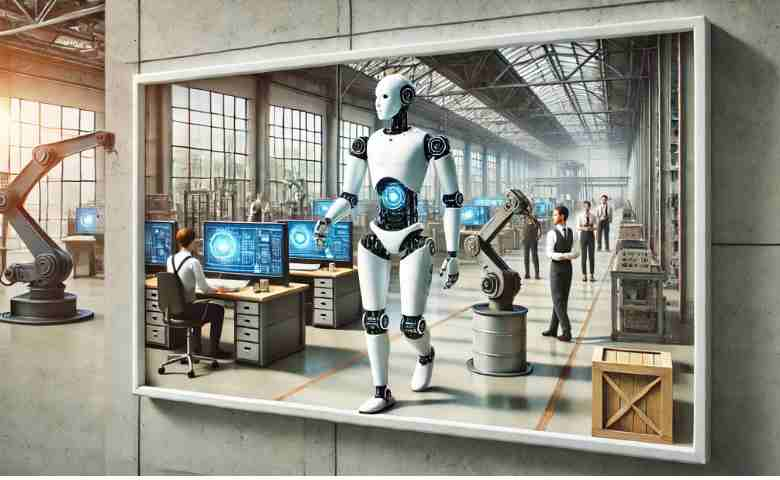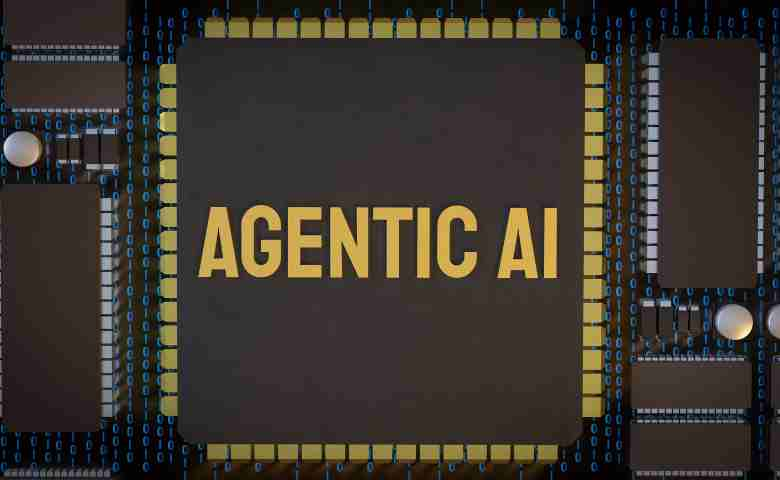Last Updated on March 22, 2025 by Admin
Agentic AI is rapidly emerging as a transformative force in the construction sector. By enabling autonomous decision-making and real-time adaptability, agentic AI promises to revolutionize project management, risk assessment, and overall operational efficiency. However, as with any disruptive technology, its integration into traditional construction practices is met with both enthusiasm and caution. Drawing on insights from leading industry insights this article delves into the definition, applications, benefits, challenges, and future prospects of agentic AI in construction.
Table of Contents
Understanding Agentic AI
Definition and Core Concepts
At its core, agentic AI refers to systems capable of independent decision-making based on real-time data, complex algorithms, and adaptive learning processes. Unlike traditional AI models that require human direction for every task, agentic AI systems can operate autonomously in dynamic environments. This capability makes them particularly suited for the construction industry, where conditions on-site and project parameters frequently change.
- Autonomy and Decision-Making: These systems are designed to evaluate vast amounts of data—from project timelines and material supplies to on-site conditions—and make informed decisions without continuous human oversight.
- Adaptive Learning: Leveraging machine learning, agentic AI continuously refines its models to improve accuracy in predictions and responsiveness to emerging challenges.

Applications in the Construction Industry
Revolutionizing On-Site Operations and Project Management
The construction industry is multifaceted, involving complex workflows that span design, material procurement, scheduling, and risk management. Agentic AI can be deployed across these various stages to streamline operations and enhance productivity.
1. Project Management and Scheduling
- Dynamic Scheduling: Agentic AI can monitor project progress in real time, adjusting schedules dynamically to accommodate delays, weather disruptions, or material shortages.
- Resource Allocation: By analyzing data from multiple sources, these systems can optimize the allocation of labor and equipment, ensuring that projects remain on track and within budget.
2. Risk Management and Safety
- Predictive Analytics: As highlighted by viAct.ai, agentic AI acts as an “AI-powered ally” in risk management by forecasting potential hazards and identifying safety issues before they escalate.
- Incident Prevention: Continuous monitoring and analysis of on-site conditions allow the AI to flag safety risks and suggest proactive measures, thereby reducing accidents and ensuring regulatory compliance.
3. Quality Control and Maintenance
- Automated Inspections: Using sensors and real-time data feeds, agentic AI systems can identify structural weaknesses or quality issues in materials and workmanship, prompting immediate corrective actions.
- Preventive Maintenance: In the post-construction phase, these systems can predict equipment failures or structural degradation, scheduling timely maintenance to avoid costly downtime.
4. Enhancing Design and Engineering
- Optimized Design Processes: Beam AI notes that agentic AI can assist in the design phase by simulating various building scenarios, allowing engineers to test and refine their plans efficiently.
- Integration with BIM: When integrated with Building Information Modeling (BIM) platforms, agentic AI can enhance collaborative efforts among architects, engineers, and construction managers.
Benefits of Integrating Agentic AI
Transformative Potential and Operational Advantages
The adoption of agentic AI in construction brings numerous benefits that can transform traditional processes:
- Efficiency and Cost Savings: Automated decision-making and predictive analytics streamline operations, reduce delays, and minimize resource wastage. Oracle’s discussion on agentic AI emphasizes how these systems can reduce operational overheads while boosting project timelines.
- Enhanced Safety: Continuous monitoring and proactive risk assessment help prevent accidents, safeguarding workers and reducing liability risks.
- Improved Project Outcomes: With dynamic scheduling and real-time adjustments, projects are more likely to meet deadlines and quality standards.
- Data-Driven Insights: The integration of large-scale data analytics provides construction managers with actionable insights, enabling informed strategic planning and decision-making.
- Innovation in Design: By simulating various design scenarios and integrating advanced modeling tools, agentic AI fosters innovation in architectural and engineering practices.

Challenges and Considerations
Barriers to Adoption and Integration
While the transformative potential of agentic AI is significant, several challenges must be addressed for successful integration into construction processes:
1. Technological Integration
- Legacy Systems: Many construction firms rely on outdated systems that may not easily integrate with advanced AI platforms.
- Data Silos: Effective AI operation depends on the seamless flow of data across different project management and operational systems. Overcoming data fragmentation is critical.
2. Workforce Adaptation
- Skill Gaps: The shift towards autonomous systems requires a workforce that is skilled in data analytics, machine learning, and digital project management. Construction Dive warns that builders must adapt to these new technological demands or risk falling behind.
- Cultural Resistance: The construction industry’s traditional practices may resist change, necessitating a cultural shift towards embracing automation and data-driven decision-making.
3. Ethical and Regulatory Concerns
- Liability Issues: Determining accountability when autonomous systems make decisions—especially those that result in errors or accidents—remains a complex legal challenge.
- Data Privacy and Security: With vast amounts of operational data being processed, ensuring robust cybersecurity measures is paramount to protect sensitive information.
4. Cost and Investment
- Initial Investment: The upfront costs of integrating agentic AI can be substantial, particularly for smaller firms.
- ROI Uncertainty: While long-term savings are promising, quantifying the immediate return on investment can be challenging.
Future Prospects
Navigating a Transformative Landscape
The future of agentic AI in the construction industry is bright but will depend on continued innovation and strategic adaptation:
- Increased Adoption: As technology matures and integration challenges are addressed, more construction firms are expected to adopt agentic AI, driving industry-wide transformation.
- Hybrid Models: Future developments may see a blend of human expertise and autonomous systems working together, combining the best of both worlds to enhance project outcomes.
- Regulatory Evolution: As the technology becomes more prevalent, regulatory frameworks will likely evolve to provide clearer guidelines on liability, data security, and operational standards.
- Continuous Innovation: With ongoing advancements in machine learning and sensor technologies, agentic AI systems will become even more adept at predicting risks, optimizing designs, and ensuring project efficiency.
According to insights from Connected World, agentic AI’s potential extends beyond operational improvements—it represents a paradigm shift in how businesses approach innovation and competitiveness in a rapidly changing global landscape.
Upskill for the Future
For project managers looking to lead the change in construction through innovative technology, now is the perfect time to build your AI expertise. I highly recommend checking out the Generative AI for Project Managers Specialization on Coursera. This comprehensive course is designed to equip you with the skills needed to harness AI’s potential in managing projects, ensuring you stay ahead in this rapidly evolving field.
Final Thoughts
Agentic AI stands at the forefront of a technological revolution in the construction industry. Its ability to autonomously manage complex tasks, predict risks, and optimize resource use offers unprecedented benefits—from increased efficiency and cost savings to enhanced safety and innovation. However, realizing its full potential requires overcoming significant challenges, including technological integration, workforce adaptation, and ethical considerations.
As the industry navigates these hurdles, the collaborative efforts of technology providers, regulatory bodies, and industry professionals will be crucial in shaping a future where agentic AI not only transforms construction processes but also drives the evolution of the built environment.
By balancing the transformative advantages with a realistic appraisal of the challenges, stakeholders can harness the power of agentic AI to build smarter, safer, and more sustainable construction practices for the future.
Related Posts:
- AI in Construction: How AI is shaping the future of the construction industry
- How BIM and AI Will Revolutionize the Construction Industry
- Civil Engineering Trends 2025: Pioneering the Future of Infrastructure Development
- Emerging Careers in the Construction Industry in the Age of AI
- AI in Real Estate: A Deep Dive into the Future of Property Market


